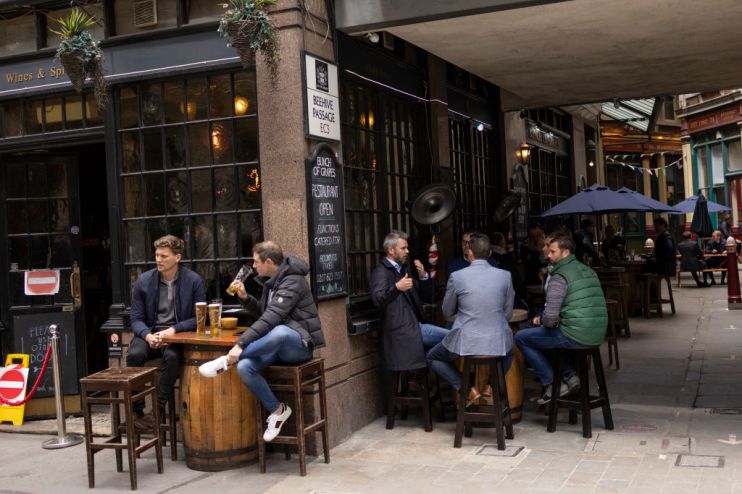The unofficial economy of gossip has always been a powerful lure of the City

The City has weathered an almighty storm over the last two years. And yet, there is still a strong appetite for people to come back to their offices even in the midst of so much uncertainty. The pros and cons of home working, hybrid and the office have been discussed at length. It has become one of those flashpoints for conversation. How often do you hear someone ask, “so are you still working from home?” For most of us, it seems to happen in almost every new interaction. It’s a common ground.
Employers are in the reeds of a reckoning: what do employees want? How often do they want it? And all of the other questions we’ve all asked ourselves and each other while working from home.
But when thinking about the clusters of some of our largest and most historic offices, such as the City of London, it is not only the conversation inside those four walls that counts. The magnetism of the office, drawing employees back to a centralised location, will once again create a thriving city economy. Coffee shops, lunch bars and pub gardens filled with workers from across a diverse range of businesses and industries connecting and debating.
This economy will be measured by forecasters in coffee sales, lunch receipts and bar tabs, but there is one aspect of this economy that is often underestimated and undervalued: the economy of gossip.
The City has long thrived on gossip. The coffee house of Mr Edward Lloyd provided a place for titbits to be exchanged, with investors in risky trading activity swapping stories about what might be the best bet. This unofficial hub for knowledge sharing went on to build the foundation of the world’s most successful insurance market. The pubs of Leadenhall Market now often provide a similar environment, offering a space both removed from and intrinsically attached to the offices which surround them.
As David Kynaston’s excellent history of The City of London recounts, stockbrokers in the 1950s and 1960s would often have two or even three lunches a day before returning to the office to share what gossip they had gleaned. With talk of Lloyd’s of London vacating their iconic building, one would be remiss not to factor into that cost-benefit analysis the value of the knowledge sharing which not only goes on in such a building, but in the streets around it.
From Linklaters to HSBC, we have seen business leaders encouraging staff to return to the office, with many extolling the virtues of interaction and collaboration as essential to their businesses. But the more street-savvy among these senior executives will be well aware of the financial value of gossip, a commodity which is not bought or sold but bartered and requires face to face conversation, sometimes topped up with a nod and a wink.
Working from home has encouraged many to take up walking, getting out at lunchtime and afterwork to explore their local areas. So I’d say the same to those coming back to the office: head out at lunchtime or when the working day is done, explore the winding streets and have a drink at a local business. But when out, keep your ears open, and hear the gossip from the thousands of businesses which surround you. The unofficial economy of the City is on its way back.
